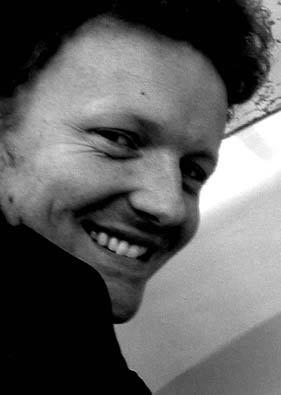 Further evidence of the love of God to us is found in the open access we have been given to God the Father through the Son in the power of the Spirit. By grace we are offered the opportunity in Christ through the Spirit to participate in the eternal communion between the Father and the Son.[1] God the Father has wonderfully shown us himself through giving his Son to us in Jesus’ incarnation, death and resurrection.
Further evidence of the love of God to us is found in the open access we have been given to God the Father through the Son in the power of the Spirit. By grace we are offered the opportunity in Christ through the Spirit to participate in the eternal communion between the Father and the Son.[1] God the Father has wonderfully shown us himself through giving his Son to us in Jesus’ incarnation, death and resurrection.There also lies an indivisible wholeness between the persons of the Trinity. The Trinity is involved in ‘mutual sharing’ of each other. They are ‘relations that depend on each other for their meaning’.[2] They ‘receive from and give to each other their unique particularity’.[3] The Trinity relates not just with itself but in itself. The Father, the Son and the Spirit ‘contain each other with co-mingling and without separation’. There is an ‘eternal movement of love’ between them.[4] The Father cannot define himself as Father without the Son. The Son is not known as Son without his relationship with the Father. The Spirit cannot proceed from nothing – he must proceed from someone. The internal Trinity defines itself by the other in it. This is also important in informing our ideas of personhood and community to be discussed shortly.
The Father is truly knowable through the earthly life, death and resurrection of the Son. Despite there being a hierarchical ordering of roles within the Trinity in the Bible, we see that there is no ‘inferiority’ between the persons of the Trinity. Each share divinity equally through their union, in one relational being. The Father sends the Son. The Son obeys the Father. The Spirit proceeds from the Father and the Son. This ‘order’ is within the Trinity itself and shows us the love of God in saving us and the roles that each in the Trinity play in this, as the Son, in love, obeys his Father for our sake and the Spirit shows us this loving bond. Although ‘seemingly’ inferior to the Father, the Son reveals to us a powerful witness of depths of the love of God to us in his equal divinity. This is not a dictatorial Trinity with the Father as the one source of life. That the Son would voluntarily submit to his Father and become flesh to show us the Father is evidence of this. Likewise the Spirit, bonded mutually to the Father and the Son, draws us to the Father through the Son in love for us; the Spirit is the bond of love between Father and Son.
When God acts, it is personal for him. For example, Jesus dying on the cross on our behalf is an act of God in himself. The offer of justification by faith is a personal act of God himself. This God is a personal God who is personal in his actions. What we see of God in the bible is what we get – a God of unyielding love who seeks us out for relationship, whose very being demands relationship and sharing within himself and for us. God is personal God as witnessed in his relational being and mutual indwelling relations. He offers to each human being ‘a relation of unique intimacy, of participation in his divinity’, through his personal offer of reconciliation of us to himself through Christ.[5] Through sending his Son into the world for our salvation (John 3:16), God reveals that ‘he will not live alone without us…God loves us more than he loves himself’.[6] T.F. Torrance states this powerfully:
God loves us because he loves, because his loving is the primary act of his Being, because his loving is his very being.[7]
[1] J.B. Torrance, Worship, 8.
[2] David S. Cunningham, ‘The Trinity’, in The Cambridge Companion to Postmodern Theology (edited by Kevin J. Vanhoozer; Cambridge Companions to Religion; Cambridge, UK: Cambridge University Press, 2003), 189.
[3] Gunton, Father, Son and Holy Spirit, 16.
[4] T. F. Torrance, The Christian Doctrine of God, 170.
[5] Letham, The Holy Trinity, 459.
[6] T.F. Torrance, The Christian Doctrine of God, 244.
[7] T.F. Torrance, The Christian Doctrine of God, 244.


3 comments:
What prompted this series? I'm enjoying it. How many more are to come?
The Spirit proceeds from the Father and the Son.
Do you think the Son is also begotten by the Spirit? Does the Spirit proceed from the Father and Son in the same way?
Byron - thanks for your comments and hope your health is still on the improve.
Yes, this is a spontaneous series with no warning whatsoever. I thought I'd publish my last College essay! Modern Trinitarian Thought was my favourite subject at college and made a big impression. Our theology informs our community living and I guess I wanted to pass this on. Also - just to get back into meditation and reflection on theology again!
Re your questions - give me a couple of days for the old 386 brain to work! I'll think it through more. Any books worth reading on this subject?
I was very stimulated by Moltmann's The Spirit of Life. I think there is a section towards the end on the filioque issue about the relationship of Spirit and Son - also a chapter near the start looking at the Son's Spirit-powered ministry.
Post a Comment